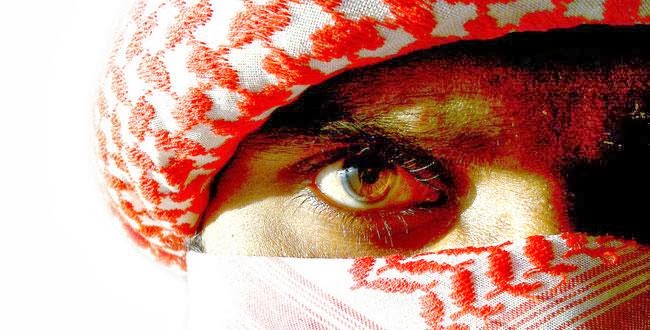
The skies are no longer a very friendly place to fly if you’re brown or “maybe-Muslim”. A few days ago, an Iraq-born researcher at UC Berkeley was removed from a Southwest Airlines plane for speaking Arabic. A passenger heard the guy end a phone call with “inshallah” and decided it must mean “this plane full of infidels is going down”. In reality inshallah (which translates as “God willing”) is a versatile Arabic phrase that can be used to mean everything from “hopefully” to “never going to happen” to “I’ve stopped listening now, kthanxbye.”
This isn’t the first time someone has raised suspicions simply by speaking Arabic – the world’s fifth most-spoken language – on a plane. Fearmongering around terrorism has ignited a vicious vigilantism in air travel. The 17th century had the Salem witch trials; the 1950s had McCarthyism; today we’ve got Mile High Hysteria.
Last November, for example, two Palestinian-Americans were blocked from boarding a Southwest flight after another passenger heard them speaking Arabic and felt “uncomfortable”. Shortly after that incident, Spirit Airlines kicked four passengers of Middle Eastern descent off a flight because one of them was making calls in another language.
You don’t even need to be speaking Arabic to raise suspicions among “concerned citizens”, you simply need to be doing something a little “terroristy”. Like not being white. Last month, Laolu Opebiyi, a (Christian) Brit of Nigerian descent was removed from an easyJet plane after another passenger saw the word “prayer” in his Whatsapp messages.
Oh, but these are just the times we live in, some might say. It’s not bigotry, it’s security! Better safe than sorry! Indeed, what better way to fight terrorism than through irrational fear that manifests itself in divisive bias?
However, if these really are the times we live in, shouldn’t aviation authorities be doing a little more to help people identify the terrorists in their midst? Rather than making us sit through demonstrations of how to insert one end of a seatbelt into another, airlines should be showing us the best way to racially profile our fellow passengers. While we await the modernisation of inflight safety briefings, I have taken it upon myself to provide some helpful pointers as to how to spot a terrorist at 30,000 feet. So, ladies and gentlemen, for the next few paragraphs, I would like your complete attention ...
Hipster or terrorist? Know the difference
Unprecedented numbers of young men currently labour under the delusion that beards are attractive. This means that there will probably be a fecundity of facial hair on your next flight – not all of which will be fundamentalist. Please take a few moments to locate your nearest beard and assess whether it belongs to a hipster or a terrorist. You are, of course, entitled to argue that hipster-led gentrification is itself a form of urban terrorism, in which case I’d suggest dashing off 800 words on the matter instead.
First-class weaponry
Taking a knife on to a flight is frowned upon for security reasons. However, if you happen to turn left when you board the plane you are given a variety of sharp knives and glassware at mealtime. I can only assume that intelligence agencies have data which shows that terrorists are more likely to be sitting in the cheap seats. This makes no sense. If I were going to blow myself up on a plane (I’m not, despite my questionable name), I would not add insult to injury by flying economy.
Recognise terrorist toilet time
Ten minutes locked in the toilet means someone is suffering explosive bowel movements from the airplane lasagne. Any longer than that and they’re probably going to blow up the plane. It’s just maths, really.
Beware of scarlet hair
According to Breitbart, a rightwing blog read – according to some experts – by people who aren’t very bright, redheads are more likely to be terrorists. The site notes that white “Islamic extremists reported on by the media are 15 times more likely than the general population to have red hair”. The rationale for this, Breitbart writes, “at least according to some experts”, is the “bullying and persecution [redheads] endure early in life”.
Yallah, yallah
Anyone who says “Allah” on a plane is 99.9% likely to be a terrorist, at least according to some experts. However, the tricky thing is that a lot of innocuous slang in Arabic sounds vaguely like “Allah”. Take “Yallah” for example, which means “hurry the eff up”. If the guy next to you is muttering “yallah, yallah” to himself he is probably not saying his last prayer, he maybe just wants the food to arrive.
Keep calm among the carry on
Jokes aside, it’s always worth reminding yourself of the cheery fact that you’re probably more likely to die from airplane food than from terrorism. So next time you worry that the brown guy in seat 32E looks murderous, resist Mile High Hysteria. He’s probably not Isis; he probably just wishes he hadn’t eaten that lasagna.
